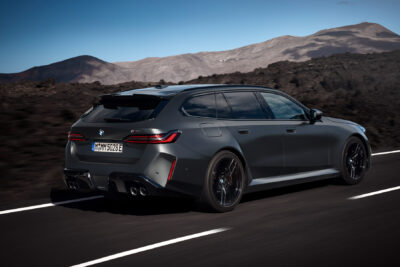BMW recalls multiple PHEV models
BMW again has a problem with the high-voltage batteries in plug-in hybrid vehicles. Due to possible impurities in the production process of the battery cells, there is an increased risk of fire in several series.
The total number of plug-in vehicles involved is 26,700 worldwide. One-third of these units are in customers’ hands; the rest are subject to a delivery stop. Specifically affected are the PHEV versions of the X1, X2, X3, X5, 2-series Active Tourer, 3-series, 5-series, 7-series, i8 Coupé and Roadster, as well as the Mini Countryman from the construction period 20 January to 18 September this year.
According to a Group spokesperson, the issue is “country-specific not necessarily affected all of these models”. In Germany, around 1,800 customer vehicles have to be taken to the workshop, while a further 3,500 vehicles already produced will not be delivered for the time being.
BMW is currently sourcing its battery cells from CATL and Samsung SDI, and from 2024, Northvolt will be another cell supplier.
The “impurities in the production process of the battery cells” have probably only occurred at one of the two current suppliers, which is why only some of the vehicles are affected. “In rare cases, these impurities can trigger a short circuit within cells in the high-voltage storage, for example,” says the spokesperson.
BMW expects a solution “probably by the end of October”. However, as reported by kfz-betrieb, BMW has not yet been able to provide any details regarding the inspection of the high-voltage storage units or any repair measures that may be required. According to the report, there is only a fire hazard if the batteries are fully charged, which is why the recall announcement also asked customers to stop charging their PHEVs by cable. This means that although the E mode is only of limited use, there is no fire hazard.
Ford had a similar problem with the Kuga PHEV in the summer. Since four vehicles suffered fires due to overheating of the battery during charging, customers are also advised not to charge the battery via cable. The cause at Ford is apparently a safety mechanism that does not reliably dissipate enough heat and pressure.
At BMW there were three reports of plug-in hybrids caught on fire last week, specifically in the German town of Erfurt, Herne and Salzburg in Austria. BMW has not yet been able to confirm whether the incidents are connected to the recall. A comprehensive analysis of the damaged vehicles is still pending.
This is not BMW’s first problem with its PHEVs: as recently announced in August, a recall of 4,460 units of the BMW 3 Series, 3 Series Touring, X1, X2, X3, X5, 2 Series Active Tourer, 7 Series, 5 Series and 5 Series Touring and Mini Countryman series. During internal inspections, it was discovered that a welding bead on the high-voltage accumulator from the component period 13 March 13 to 6 August 2020 had not been completely removed during production. “In rare cases – depending on the shape, size and position of the welding bead – the contamination during the initial charging process could cause a malfunction, such as a short circuit in the high-voltage storage tank,” said the manufacturer.
A significantly larger is a battery recall that is currently underway at Hyundai: In South Korea, the recall of over 25,000 Kona Electric has already been confirmed. According to reports, Hyundai has decided to voluntarily recall 77,000 Kona Electric worldwide. Official information on the recall is not fully available yet.
kfz-betrieb.vogel.de, kfz-rueckrufe.de (both in German)




4 Comments